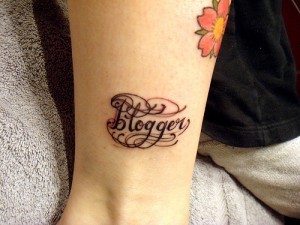how to blog like you mean to change the world
We shall not cease from exploration. And the end of all our exploring. Will be to arrive where we started. And know the place for the first time.
— T.S. Eliot
1
Transformation is a point in the journey, a shift in the paradigm, a change in the way you see yourself.
We construct ourselves according to the stories we tell ourselves ( and others) about our lives. What happens when you reinterpret those stories? Or help your reader do the same? When you discover a new belief about yourself, or jettison an old one that no longer serves you?
Blogging is a form of marketing – we are marketing our work, ourselves as creators – but true marketing (or unmarketing) isn’t just some shallow, slapped-on attempt at self-promotion. (This is otherwise known as bad marketing.) It’s about making an emotional connection with the people whom you are meant to serve: your audience.
So first you have to identify your audience. Then you have to figure out how and where to reach them – and make them come to you, which they will do, happily, if you give them a valid reason.
If you can teach, entertain, inspire. If you can create content that actually means something.
It comes down to the kinds of questions you ask.
Who do you want your readers to become?
How can you inspire and empower them to become that?
The ironic thing is that although a creative platform promotes yourself and your work, it’s not actually about either of those things.
It’s about your reader.
You are not the hero of this story. The reader is.
You are, instead, the mentor figure, helping the reader become the person that he or she needs to be in order to get the thing for which he or she is striving.
This is why, as a blogger, you need some authority on your side: the reader needs to find you credible in this role. You need to be farther along on the journey – or better yet, to embody it in some way. To be walking your talk. To be living out the very values you espouse in your blog. This grants you the charisma to move ahead of the pack, into a striking bit of territory unique to you.
2
John Hagel makes the distinction between story and narrative.
1. Stories are finite: they have a beginning, a middle, and an end resolution.
2. Stories center on a protagonist. You are meant to identify with that character.
The inherent message is Listen.
1. Narratives are open-ended. They lack resolution. They are in the very process of unfolding.
2. They invite you to participate and determine the outcome. It’s up to you to help shape how this story will end.
The inherent message is Join.
“Narratives motivate actions,” Hagel notes. “In some cases, they motivate life and death choices…Every powerful movement that has impacted our world has been shaped and energized by a potent narrative.”
A narrative pulls the reader into the hero role, and you, as mentor, give her the tools, gifts and knowledge that enable her quest.
Hagel makes the point that narratives happen on personal, institutional and social levels. These narratives nestle inside each other like Russian dolls.
Think about Apple’s “Think Different” campaign. It unfolds inside a larger narrative that presents American society as an enemy, threatening to submerge you in an ocean of conformity. Apple urges you – the creative rebel hero — to resist, through reclaiming your true identity and battling the forces of sameness.
They offer you the tools to do this (at a price).
They empower you to live out your own personal narrative of creative rebellion, to create new stories about you that identify you in this way.
I challenge you to identify the personal and social narratives that you are living out in your own life. What do they say about who you are, what you want, and how you view the world?
I challenge you to create a narrative for your blog – or your creative work in general – that puts your audience front and center.
You’re not simply addressing the reader as she is, but who she aspires to be .
Your blog becomes a way of calling out your reader’s higher self. click to tweet
In Ernest Becker’s Pulitzer Prize-winning work THE DENIAL OF DEATH, he says the reason we respond so strongly to heroes is because we secretly yearn to be heroes ourselves.
We yearn for a heroic life. We know we’re meant for bigger things.
Find a way to connect your reader to the hero within her. Create in a way that serves her hero’s journey, and you’re not just painting a picture or starting a company or writing a novel or posting a blog.
You’re building out a new mythology.
You’re feeding a collective soul-hunger.
That’s the kind of thing that changes a life. Or a culture. Or a world.












